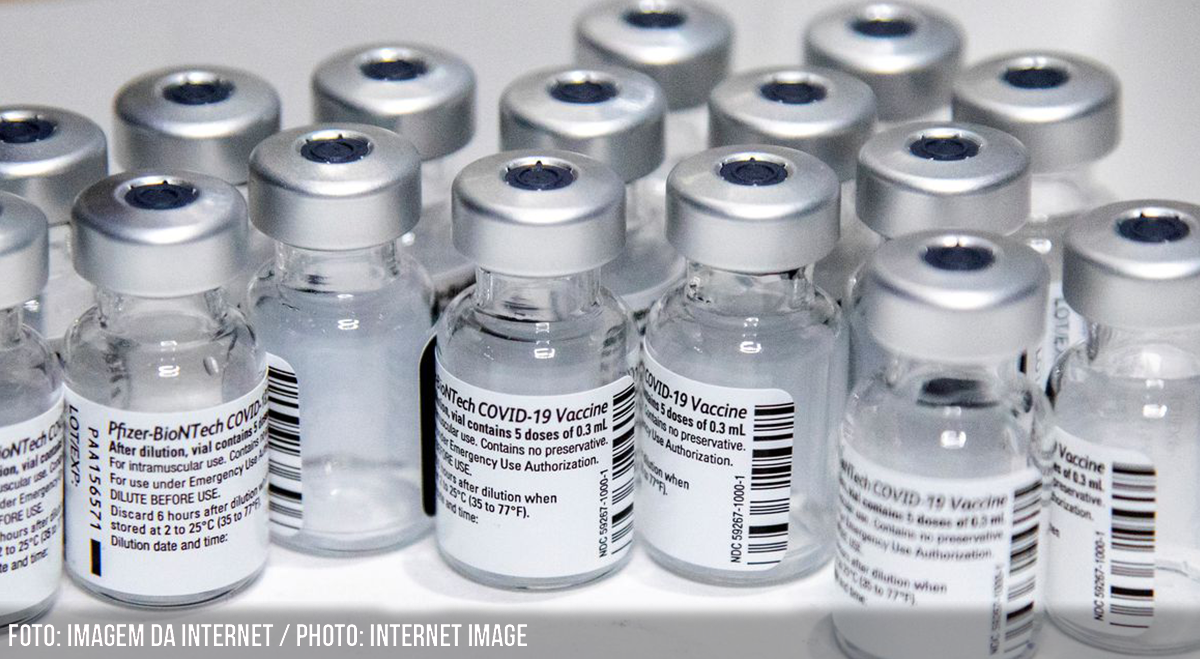
COVID-19: mRNA vaccine may protect for years
Study showed robust development of B cells in lymph nodes for at least 12 weeks after complete vaccination
06/08/2021
Researchers could not tell whether someone who received the mRNA doses and who was not previously infected were similarly protected
A new study published in Nature in late June titled “SARS-CoV-2 mRNA vaccines induce persistent human germinal center responses” demonstrates evidence that the Pfizer-BioNTech vaccine may trigger a persistent immune response that would ensure long-term protection against COVID-19. This, however, directly depends on the evolution of virus variants, which can change the picture and decrease efficiency. Also according to the study, people who recovered from Covid-19 before being vaccinated with immunizers that use messenger RNA technology may also not need boosters. Despite this, the conclusion may not apply to the elderly, people with weakened immune systems, and those who take medications that suppress immunity.
Dr. Rachel Presti, PhD, Member of the US Society for Infectious Diseases and Associate Professor of Infectious Diseases, Clinical Research Unit in Infectious Diseases, Washington University in St. Louis, co-author of the study, explains that the study showed robust B-cell development in lymph nodes for at least 12 weeks after full vaccination. This is important because vaccines are inducing a long-lasting response in the germinal centers of lymph nodes, where B cells are trained to produce strong-binding, long-lasting antibodies, although the vaccine components have disappeared for a long time, she highlights. This is a good sign of how long-lasting our immunity is with these vaccines. Also according to her, it is very promising that vaccines result in long-term immunity that appears to be effective against the current variants.
After a person is vaccinated, a specialized structure called the germinal center forms in the nodules. This structure is a kind of school for so-called B memory cells where they become more and more sophisticated and learn to make better antibodies against the viral spike protein. The wider the range and the longer these cells have to practice, the more likely they are to be able to stop virus variants that may arise.
For the study, Dr. Presti and her colleagues recruited 41 people, including eight with a history of coronavirus infection, who were immunized with two doses of the Pfizer vaccine. The team collected samples from the lymph nodes of 14 of these people three, four, five, seven and fifteen weeks after the first dose so that they could analyze the evolution of the immune response. The researchers found that 15 weeks after the first dose, the germinal center was still very active in all 14 participants and that the number of memory cells that recognized the coronavirus did not decrease.
The findings are encouraging and add to the evidence that people who recovered from COVID-19 before being vaccinated with immunizers using messenger RNA technology may also not need boosters. “We found that strongly reactive antibodies are produced in response to vaccination and there appears to be additional benefit in people who have had previous infection with SARS-CoV-2. We also observed that lymph nodes in people who had not been infected prior to vaccination demonstrated the presence of germinal centers that produce specific antibody responses that continued for at least 12 weeks after vaccination”, adds Dr. Presti. The fact that reactions continued for nearly four months after vaccination is a good sign, as germinal centers usually peak one to two weeks after immunization and then decline.
Dr. Presti also points out that this study was done in healthy people who received the Pfizer vaccine because it was the vaccine initially available. Lymph node biopsies were done in people who had not been previously infected, but blood studies were done in people with previous infection and people who had not been infected. Also according to the professor, there were good antibody responses in both populations, although potentially a little higher in those with previous infection.
But can immunity against the virus last a lifetime for those who received the Pfizer vaccine after contracting the virus? Dr. Presti is adamant that the goal of immunity is to develop lifelong protection against an infection, but there is currently no data on the development of memory B cells. “We think this is promising, but we wont know until we actually have long-term clinical data on protection. This is true for many vaccines – we see the initial protection and then we follow the people. If we notice a decrease in protection/immunity and an increase in disease, this indicates that a booster will be needed. So far, we are not seeing this need. These responses to the vaccine are very promising”, celebrates the co-author of the study. The researchers reinforce that, if new variants continue to appear, it will be more difficult for vaccines to remain effective, so to avoid this it is necessary to vaccinate the population as quickly as possible.
Additionally, Dr. Presti highlighted that her team could not tell people who were previously infected and people who had not similarly protected after vaccination, but the team concluded that there is a benefit in terms of antibody response even if people have prior infection. “This study was performed only for the Pfizer vaccine. There is no comparable data for Moderna to say that this is generalizable to all mRNA vaccines or to viral vector vaccines (like Janssen or AstraZeneca) or to protein vaccines (like Novavax). It could be that the long germline response is because this is a new viral antigen that the body is developing a new immune response to”, she points out. The study also does not shed light on the effectiveness of the vaccine against the Delta variant of coronavirus, which is more transmissible than the other variants.










